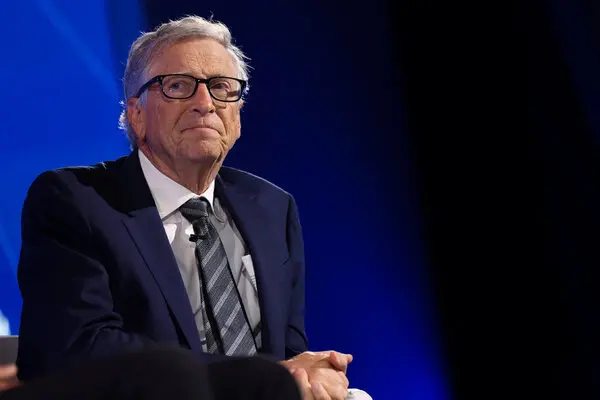Bill Gates has upended global climate discussions with a new essay urging the world to shift resources away from the “doomsday” fight against climate change and toward tackling disease and hunger.
The billionaire philanthropist and founder of Breakthrough Energy argued that climate change “will not lead to humanity’s demise” and that efforts must now target the most urgent sources of human suffering — particularly in poorer countries.
In his essay, published Tuesday, October 28, ahead of next month’s COP30 summit, Gates called the proposal a “strategic pivot.”
He said years of climate investment had been “misplaced,” claiming the obsession with achieving near-term net-zero carbon has drained resources from saving lives directly.
“Climate change, disease, and poverty are all major problems,” he wrote. “We should deal with them in proportion to the suffering they cause.”
A Shift from the Old Bill Gates
To make his point clearer, Gates said if he had to choose between eradicating malaria and preventing a 0.1°C rise in temperature, he would “let the temperature go up 0.1 degree to get rid of malaria.”
He blamed recent aid cuts — especially U.S. President Donald Trump’s withdrawal of about $8 billion in annual support through USAID — for creating a deeper humanitarian emergency that demands redirection of resources.
According to Gates, improving health and prosperity remains “the best defense against climate change.”
He cited studies from the University of Chicago Climate Impact Lab that suggest economic growth and improved healthcare could significantly reduce projected climate-related deaths.
Critics Say it’s a False Choice
The essay has divided opinion across the global environmental community. While some policy experts welcomed his call for a data-driven reprioritisation, others accused him of downplaying the existential threat of global warming.
Jennifer Francis of the Woodwell Climate Research Center said Gates was “treating the symptoms, not the cause.” She argued that much of the hunger and disease he wants to fight are already direct results of changing climate patterns.
Similarly, climate scientist Michael Mann described Gates’s approach as misguided: “There is no greater threat to developing nations than the climate crisis. He’s got this all backwards.”
Gates insists his new position is not a full retreat from clean energy advocacy but a recalibration toward efforts with “the highest measurable impact on human welfare.”
Still, many warn that his words could influence global donors and shape priorities ahead of COP30.
Rate, Like 👍, Comment 💬, Share this article, Follow us on our social media handles, and Submit your own story to get featured and earn rewards!








